Essential Software Tools Every Programmer Should Know for Interviews
Mastering essential tools is as crucial as algorithms in coding interviews, proving you can deliver real-world solutions. New AI-powered tools like EchoAPI are now key for efficient API debugging and collaboration.
When applying for programming jobs, besides algorithms and system design, one often-overlooked part of interviews is software tools and practical skills.
Nearly all interviews will touch on your familiarity and experience with common tools. Interviewers aren’t testing rote memorization—they want to confirm whether you can actually use the right tools to solve real-world problems.
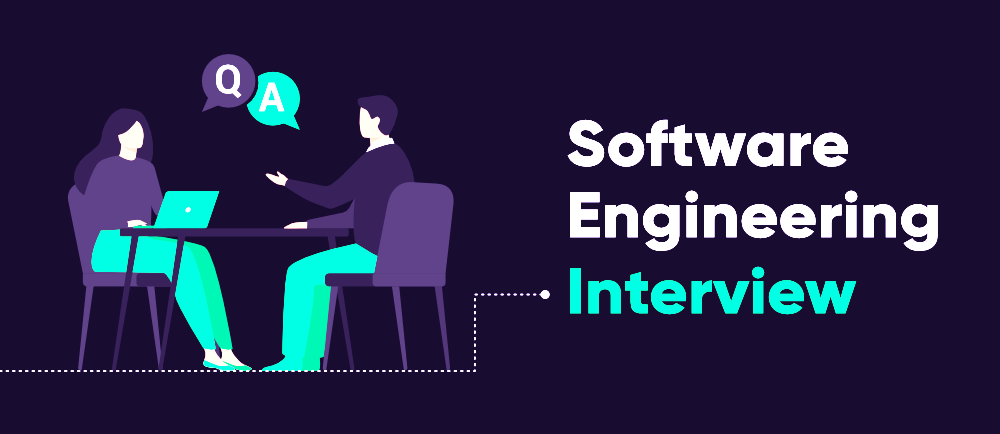
This article provides a systematic overview of:
- The most frequently asked software tools in interviews
- Practical tips and best practices for each tool
- Why API debugging tools are increasingly important both in interviews and in real work
- A spotlight on a new API debugging tool—EchoAPI—and how it serves as a powerful alternative to Postman
Why Tool Proficiency Matters in Interviews
Many programmers wonder:
"Aren’t interviews mainly about algorithms? Why would I be asked about Git, Docker, or SQL?"
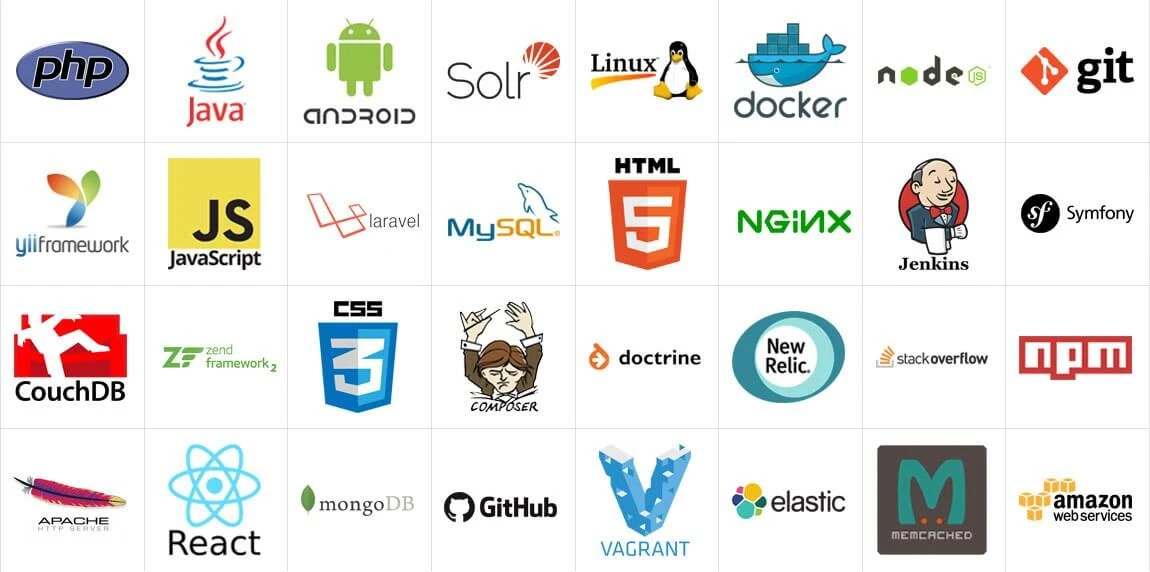
There are two reasons:
- Companies value engineering skills
They want new hires to integrate quickly, not just write code, but also work seamlessly with existing toolchains. - Tool-related questions reveal engineering thinking
How a candidate explains Git branching, Docker image optimization, or SQL indexing reflects whether they have experience in large-scale development.
In short:
Proficiency with tools proves that you can get things done.
Frequently Asked Software Tools and How to Handle Them
Below is a breakdown of common tools, potential interview questions, and tips to answer effectively.
1. Git / GitHub / GitLab
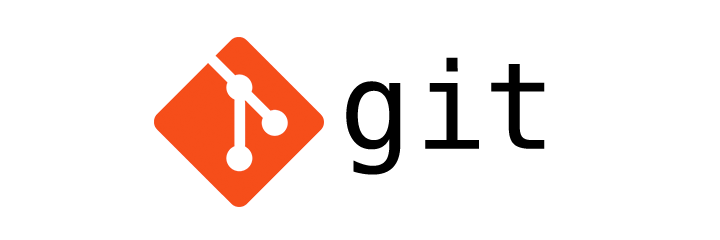
Why it matters:
Git is the global standard for collaborative development. Nearly all companies will assess your Git knowledge.
Common interview questions:
- What is your team’s branching strategy?
- What’s the difference between Git rebase and merge?
- Have you ever dealt with complex conflicts? How did you resolve them?
- How does your team handle PR reviews?
Answering tips:
- Show understanding of branching strategies (Git Flow, trunk-based development)
- Emphasize code review culture (e.g., reviewing PRs for readability and security, not just functionality)
- Share a real example of resolving a conflict—this is more convincing than abstract explanation
2. Linux / Unix Shell
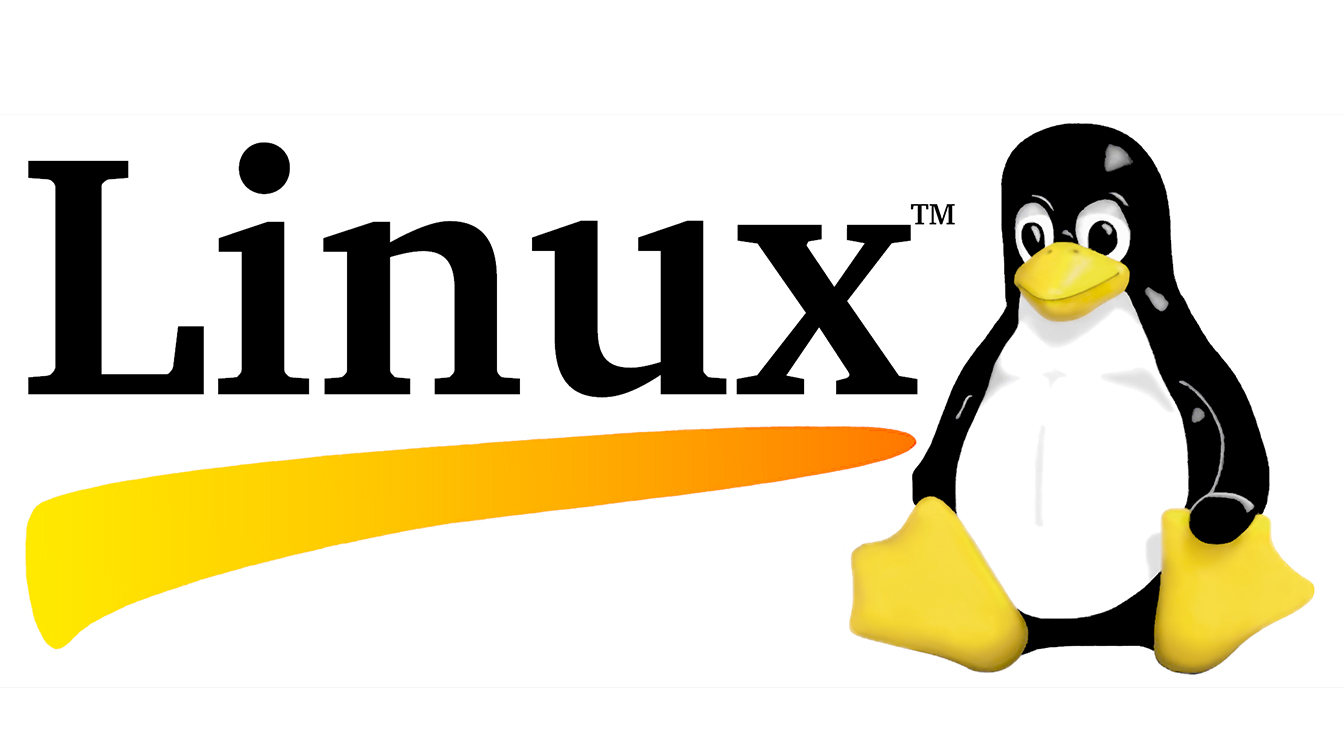
Why it matters:
Linux fundamentals are essential for backend, full-stack, and DevOps roles.
Common interview questions:
- Which commands do you use frequently? (ps, grep, tail, netstat, awk)
- How do you troubleshoot a memory-hungry process?
- How do you check if a port is occupied?
- Have you written any small shell scripts?
Answering tips:
- Be comfortable with commands like
top,ps aux,netstat -tulnp,tail -f log.txt - Share practical scripts (e.g., automated log archiving) to showcase hands-on skills
3. Docker / Kubernetes

Why it matters:
Containerization and cloud-native practices are mainstream, and major companies will almost certainly ask.
Common interview questions:
- Explain the basic structure of a Dockerfile
- How do you optimize image build speed?
- What is multi-stage build?
- What’s the difference between Pods and Deployments in Kubernetes?
- How do you debug issues inside a container?
Answering tips:
- Highlight best practices you’ve used (reduce layers, cache dependencies, use Alpine images)
- Explain the benefits of containers (portability, environment isolation)
- Be familiar with key
kubectlcommands:kubectl logs,kubectl exec,kubectl describe
4. SQL / Databases
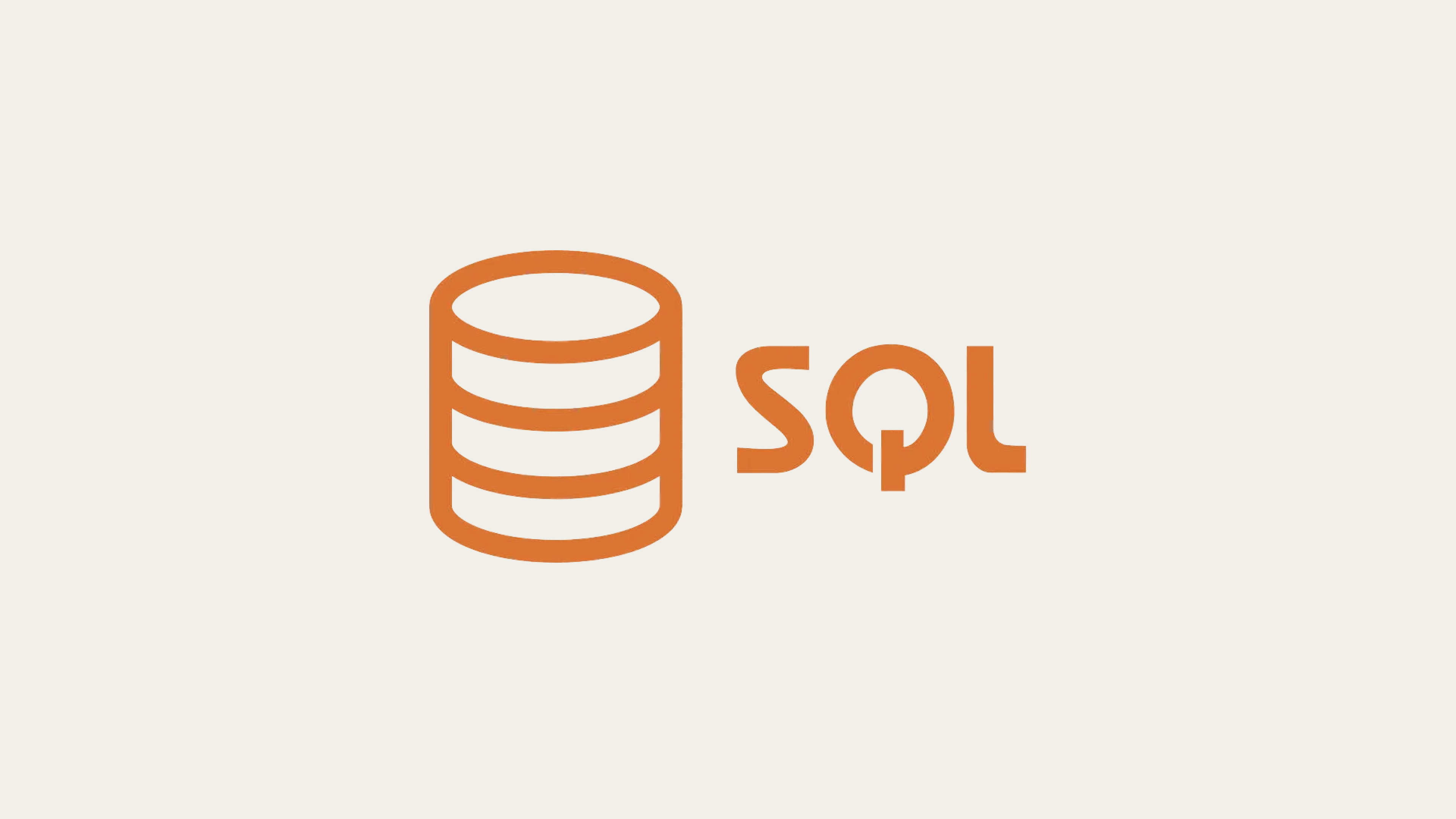
Why it matters:
Databases are at the core of backend and data roles.
Common interview questions:
- What are the differences between SQL joins?
- How would you optimize a slow query?
- Explain the ACID properties of transactions
- When would you choose NoSQL over SQL?
Answering tips:
- Show understanding of indexes: how and when to use them, and when they can fail
- Mention
EXPLAINfor query analysis to appear professional - Give examples of handling consistency and scalability trade-offs
5. AWS / Cloud

Why it matters:
Most companies use AWS/GCP/Azure. Cloud skills are a baseline.
Common interview questions:
- Which AWS services have you used?
- How would you deploy a web service on AWS?
- When would you use serverless (Lambda)?
- How do you reduce cloud costs?
Answering tips:
- No need to know every AWS service—be familiar with EC2, S3, RDS, IAM
- Mention CloudWatch monitoring for extra points
- On cost-saving: choose the right instance, enable auto-shutdown, use CDN caching
6. CI/CD Tools (Jenkins / GitHub Actions / GitLab CI)
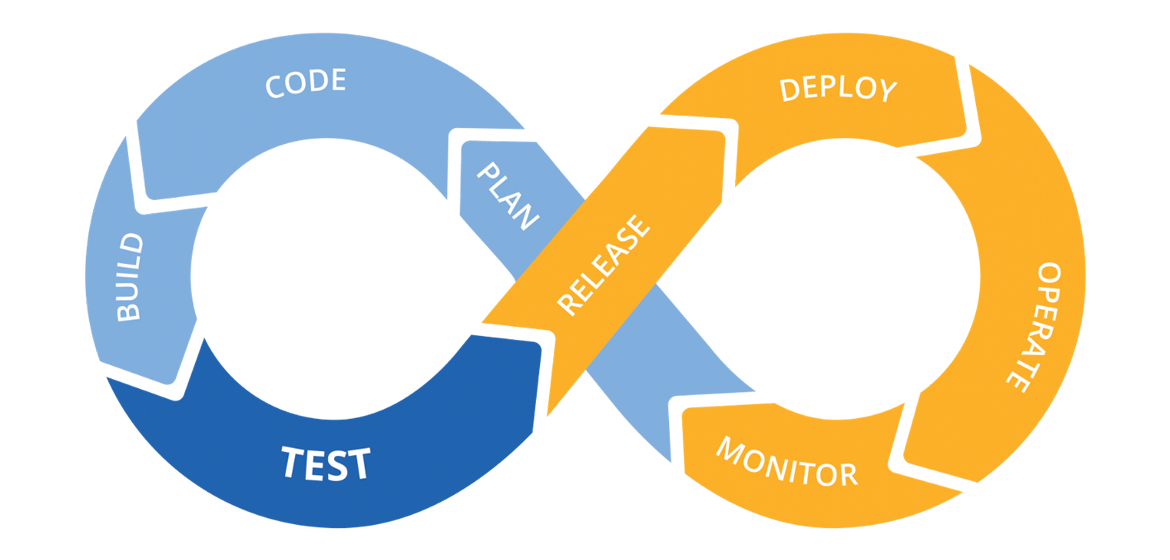
Why it matters:
Automated deployment is standard. CI/CD not only boosts efficiency but ensures quality.
Common interview questions:
- What steps does your team include in the CI/CD pipeline?
- How do you shorten build time?
- Have you encountered failed builds? How did you troubleshoot?
- Are you familiar with blue-green or canary deployments?
Answering tips:
- Typically answer: build → test → deploy
- Mention caching dependencies to speed up builds (e.g., npm cache, Docker layer cache)
- Discuss rollback strategies to show production experience
7. IDE / Debug Tools (VS Code / IntelliJ / Chrome DevTools)
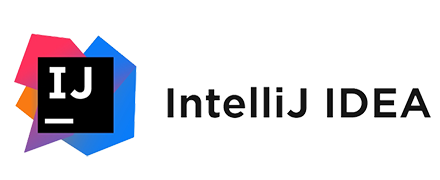
Why it matters:
Interviewers won’t quiz you on “how to use VS Code,” but they will ask about debugging and efficiency.
Common interview questions:
- What IDE plugins do you use frequently?
- What’s your first step when debugging a live issue?
- Have you encountered performance issues? How did you analyze them?
Answering tips:
- Mention breakpoints, log tracing, or profiler analysis
- For frontend roles, include Chrome DevTools + Lighthouse
- Emphasize code quality and productivity (e.g., ESLint, Prettier, SonarQube)
8. Testing Frameworks (Jest / PyTest / JUnit / Cypress)
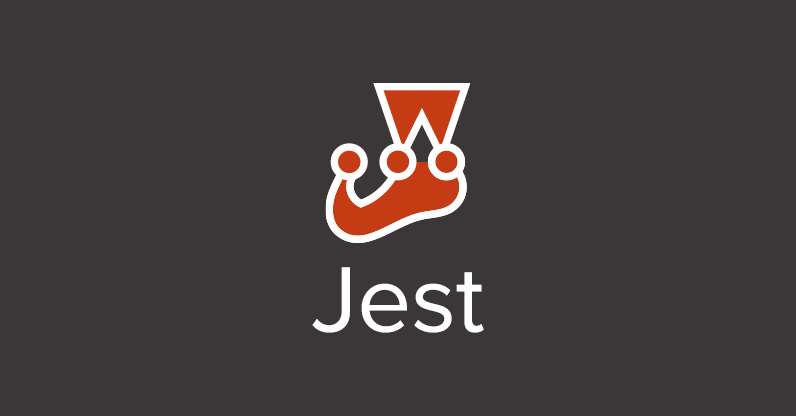
Why it matters:
Testing culture is valued, especially at large tech companies.
Common interview questions:
- Differences between unit, integration, and end-to-end tests?
- What tests have you written?
- Difference between Mock and Stub?
- What’s a reasonable coverage percentage?
Answering tips:
- Emphasize the purpose of testing, not just coverage (catch bugs early, ensure stability)
- Explain how you run automated tests in PR pipelines
- Mention TDD/BDD—even if not daily, show you understand the concept
9. Collaboration Tools (Jira / Confluence / Slack)
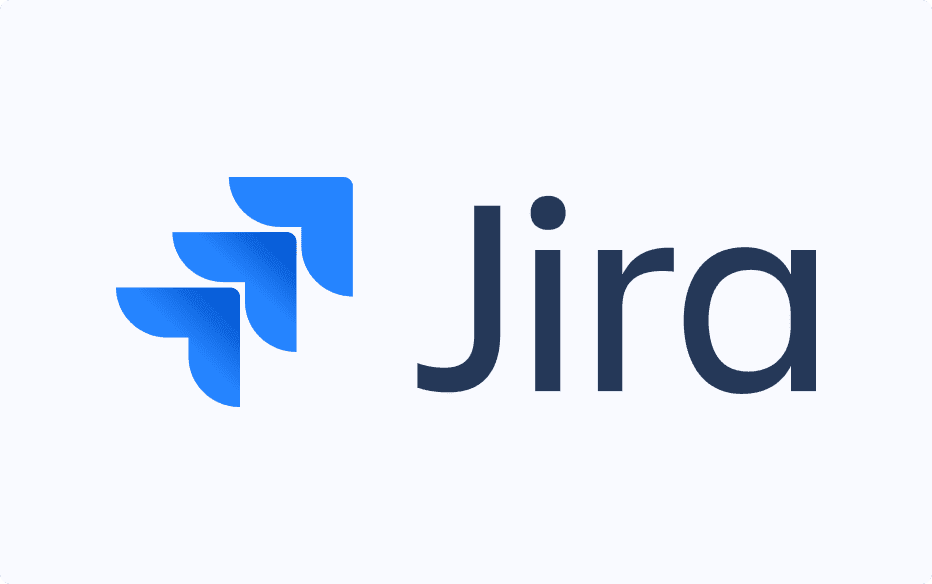
Why it matters:
Communication and collaboration are critical. Coding is basic; collaboration determines how well you integrate with a team.
Common interview questions:
- How does your team track tasks?
- What makes a high-quality ticket?
- How would you handle disagreements within the team?
Answering tips:
- Mention agile processes (sprint, backlog grooming, retro meetings)
- Emphasize clear descriptions, reproduction steps, expected results in tickets
- Highlight cross-team communication skills, e.g., with PMs, QA, DevOps
The Rise of API Debugging Tools: EchoAPI
When talking about commonly mentioned tools in interviews, API debugging tools are hard to ignore.
APIs are everywhere in modern software development:
- Frontend communicating with backend
- Microservices interacting with each other
- Integrating third-party services (payments, login, AI APIs)
The importance of API debugging tools is growing, so interviewers often ask:
Typical questions:
- Which tools do you usually use to debug APIs?
- How do you troubleshoot slow responses or abnormal error codes?
- Have you used Postman or Insomnia? What are their pros and cons?
- Have you tried automated API testing?
Enter EchoAPI
This is where EchoAPI, a new API debugging tool, is gaining traction. It not only inherits Postman’s logic but also offers clear advantages:
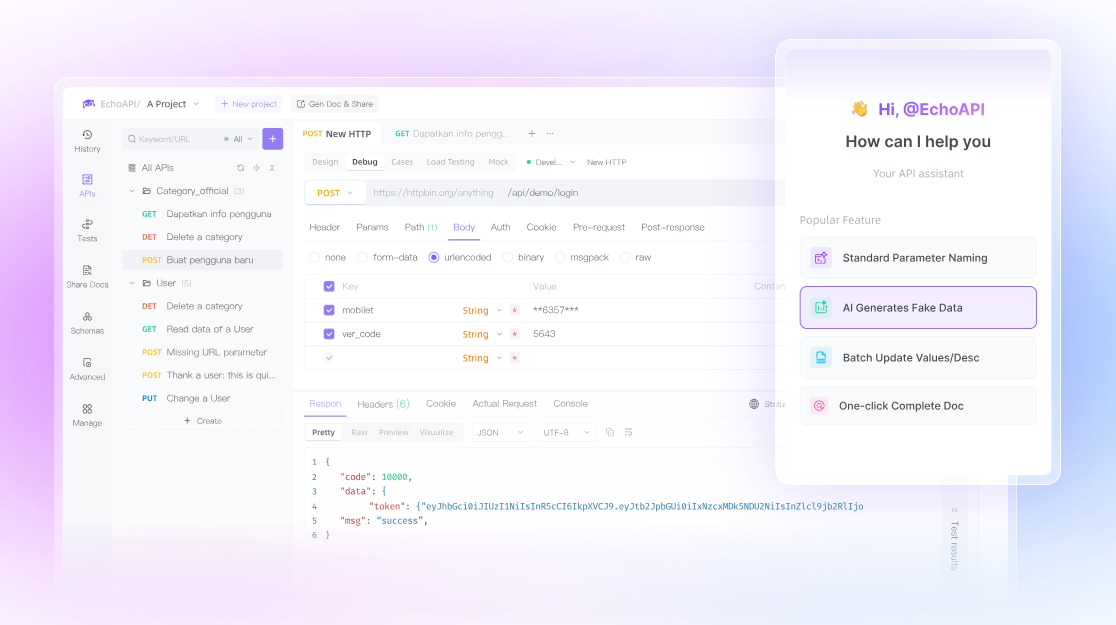
1. Minimalist, Lightweight, and Fast
- EchoAPI launches much faster than Postman—almost instant
- The interface is clean, without distracting features
2. Powerful AI Assistance
- AI-powered API Documentation Extraction:
A smart tool integrating documentation generation, API debugging, and mock services. Users can paste document content to instantly generate standardized API docs, then debug or simulate responses directly. This greatly improves documentation efficiency and team workflow. - AI-generated Test Cases:
AI automatically generates test cases based on current API information, covering 8 major testing dimensions. Users can download, apply, or run these tests, and results are stored in an AI data pool with optional test reports for analysis. - API Helper:
Handles parameter naming, documentation completion, mock data generation, and updating parameter values. It analyzes API parameters intelligently, standardizes names, and fills in documentation, eliminating repetitive work.
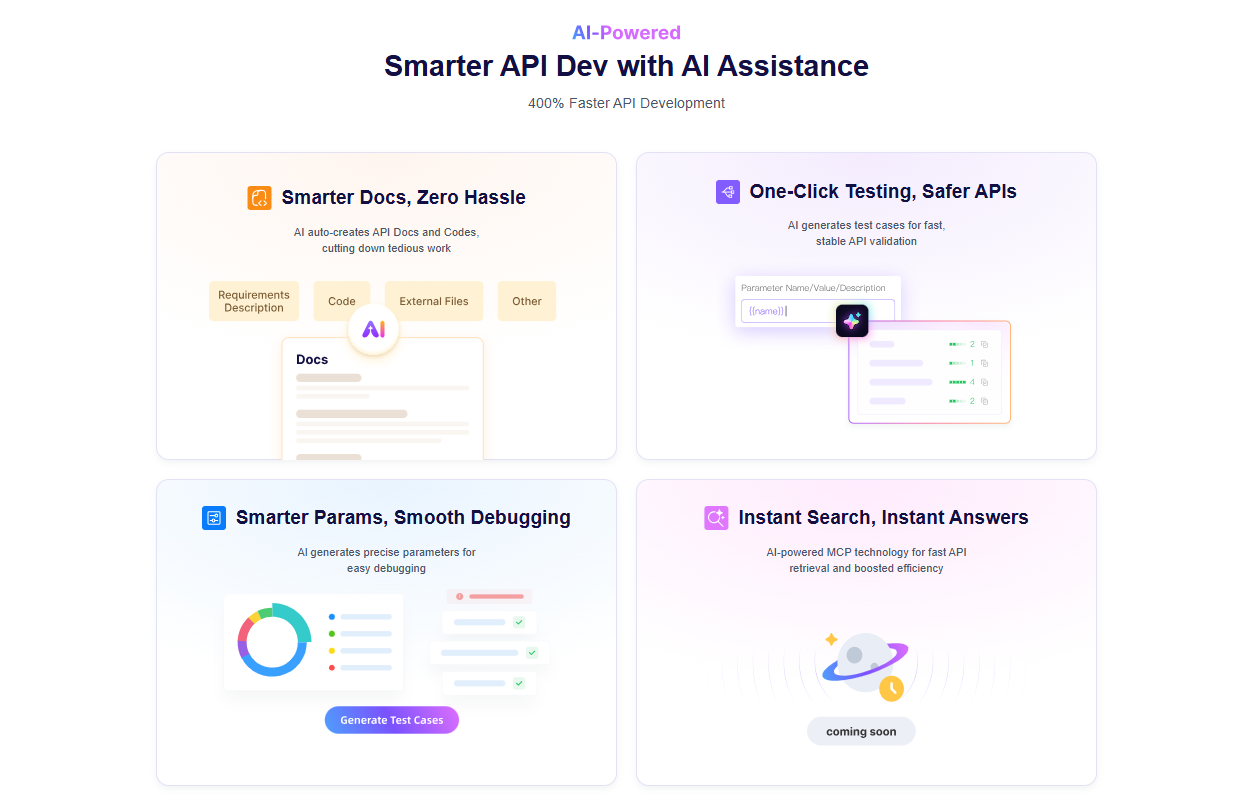
3. More Flexible Team Collaboration
- Integrates with GitHub/GitLab, allowing API collections to be versioned
- Free tier already offers strong collaboration features, more user-friendly than Postman
How to Talk About EchoAPI in Interviews
If an interviewer asks “Which tool do you use for API debugging?”, most people say Postman.
If you add:
“I’ve recently been using EchoAPI. It has AI assistance and can automatically generate API requests, which saves a lot of time when debugging third-party services.”
This signals that you are:
- Up-to-date: Familiar with new industry tools
- Experienced: Can compare pros and cons
- Productivity-focused: You care about efficiency, not just using tools
Summary
In programming interviews, tool proficiency is not optional—it’s essential.
- Git: Tests collaboration skills
- Linux/Docker: Tests ability to handle real-world environments
- SQL/Cloud: Tests ability to solve core business problems
- CI/CD/Testing: Tests engineering thinking
- Collaboration tools: Tests team integration
- API debugging tools: Increasingly important in recent years
If you can clearly demonstrate understanding of these tools in interviews, and illustrate with real examples, you’ll have an edge over candidates who only know algorithms.
Emerging tools like EchoAPI can be a bonus, making your answers appear more professional and up-to-date.




 EchoAPI for VS Code
EchoAPI for VS Code

 EchoAPI for IntelliJ IDEA
EchoAPI for IntelliJ IDEA

 EchoAPl-Interceptor
EchoAPl-Interceptor

 EchoAPl CLI
EchoAPl CLI
 EchoAPI Client
EchoAPI Client API Design
API Design
 API Debug
API Debug
 API Documentation
API Documentation
 Mock Server
Mock Server








